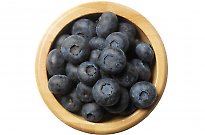
Dr Libby's holistic tips for approaching skin conditions

Learn about what's happening on the inside.
From rosacea to psoriasis, there are a range of skin conditions and ailments women experience. Here, Dr Libby Weaver shows us how to tune into what's happening on the inside.
Back-ne
Quite often a sex hormone imbalance perpetuates this, arising from high levels of androgens in the skin, elevated prolactin, or an imbalance between oestrogen and progesterone. All of these situations can be tested for if the condition is ongoing or if it doesn’t respond to the sex hormone balancing suggestions, including liver support. The first place I start with is stress management, due to the role cortisol plays in the conversion of other hormones to androgens, alongside liver support.
Body odour
This is usually a call for additional liver support.
Bumps on the backs of arms
This can be the result of an EFA [essential fatty acid] deficiency and/or due to excess fruit consumption. If EFAs are supplemented, including evening primrose oil in the mix can be helpful. If that doesn’t work, explore whether you might be zinc-deficient.
Cellulite
Liver and lymphatic support has been shown to decrease the appearance of cellulite. Rebounding is a wonderful way to stimulate the lymphatic system. Significantly limiting or omitting liver-loaders has also been shown to reduce the appearance of cellulite, or in some cases even allows it to disappear. Good quality herbal medicine can also be highly beneficial, particularly St Mary’s thistle and globe artichoke.
Cold sores
Cold sores are caused by the herpes virus, so immune support is vital: consider consuming additional vitamin C and zinc, and some immune support herbs. Herpes only reactivates itself when you trigger it with stress, poor dietary choices, or too little sleep. Herpes is like a seed in a desert: it will stay asleep indefinitely if the signal to germinate isn’t given. It is also important to minimise intake of foods that can feed viruses, such as reducing dietary exposure to the amino acid arginine. When the amino acid lysine is higher in your diet than the amino acid arginine, herpes has trouble replicating. When arginine is higher than lysine, herpes multiplies quickly. Foods high in arginine include chocolate, crustaceans, soy and peanuts.
Cracked elbows
This indicates an EFA deficiency and/or zinc deficiency.
Cracked heels
This often indicates a deficiency in EFAs.
Dry skin
This may indicate an EFA deficiency, poor skincare choice, thyroid dysfunction, poor diet or poor digestion.
Eczema in adults
Follow a strict dairy-free diet trial for four weeks. If that doesn’t make a difference at all, bring dairy back, and omit all red foods, such as chillies, capsicums (peppers), tomatoes, strawberries, apples (red and green), for a four-week trial and see whether that makes a difference. Or, if you eat more than two pieces of fruit a day, cut back to less than two, or omit fruit for a trial period of four weeks to see whether that makes a difference. An evening primrose oil supplement can also be highly beneficial, as it contains an enzyme called delta-6-desaturase, which allows fat to be incorporated into the skin, keeping it moist and youthful. For chronic, widespread adult eczema, I encourage you to also explore the metaphysical basis of adult eczema — rage toward a masculine figure in your life.
Newly oily skin and/or oily scalp
If greasy skin or a greasy scalp is new for you, it may signal that your sex hormones are imbalanced. This is particularly likely to be the case if you notice the greasiness increases in the lead-up to menstruation.
Oily skin at the same time as dry skin
Work on supporting sex hormone production; in particular, make sure that the pituitary gland is talking to the ovaries and that ovulation is occurring. Vitex can offer lovely support, as can paeonia and licorice taken together. Combination skin can also be a sign that the liver needs some love. Skincare may need to be changed to better support the skin’s functioning.
Pale, grey-tinged, dull skin
This can be a sign of poor nutrition from poor food choices, or of poor digestion. Focus on eating more real-food if you don’t already, and/or support your digestion through stress management, eating slowly, chewing food well, and drinking water between meals, rather than with meals.
Read Dr Libby's tips for other skin conditions in the April - May 2017 edition of Australian Natural Health magazine.


